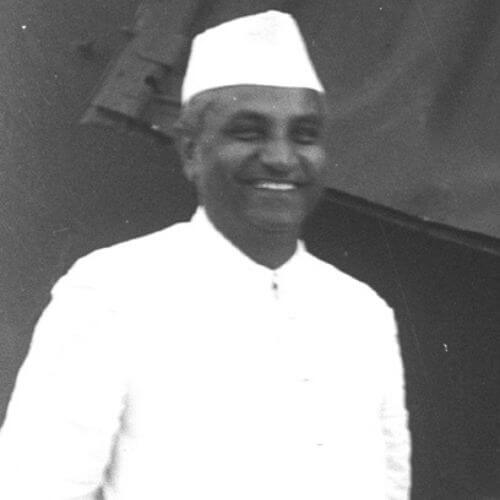Early Life:
Dr. Jivraj Narayan Mehta, was born on 29 August, 1886 in Amreli district in Gujarat. He pursued medicine at Grant Medical College, Bombay and completed the course with many accolades. Mehta was one of two persons who qualified for the prestigious fellowship from the Tata Education Foundation which he used for his postgraduate study at the University of London. He secured the prestigious University of London Medal for his MD thesis which then granted him membership to the Royal College of Physicians in 1915.
Mehta and M.K. Gandhi were in London at the same time and attended conferences together. Later, Gandhi would become one of Mehta’s patients. When he returned to India, Mehta was appointed the Dean, Medical College at the King Edward VII Memorial Hospital, Bombay.
His professional accolades continued to accumulate: he served as the President of the Indian Medical Association and All India Medical Conference, 1930, as a Member of the Bombay Medical Council, (1931-32) and Medical Council of India (1938—42). Mehta helped establish the Kamala Nehru Memorial Hospital and was a Member of its Board of Trustees and Executive Council since its inception in 1940.
He was married to Hansa Jivraj Mehta in 1924.
Role in India’s Independence Movement:
Mehta was a close associate of many national leaders and actively participated in the Non-Cooperation and Quit India Movements. He served time in prison on two occasions (1932-1933 and 1942-1944).
Contribution to Constitution Making:
Mehta was elected to the Constituent Assembly from Bombay through a Congress party ticket.
Later Contributions:
Mehta served as the Director-General and Secretary of Health Services to the Ministry of Health, Government of India from 1947-48. He was the Diwan of the erstwhile State of Baroda in 1948. Mehta served as the President of the Indian Conference of Social Work (1950 and again in 1952-54) as well as the Medical Council of India again (1947- 1963).
Mehta helped establish the Institute of Management at Ahmedabad in 1961 and served as the Chairman of its Council until 1963. He was the Vice-Chairman of the Gandhi Memorial Leprosy Foundation since 1952.
He served on multiple scientific committees in India. Some of them include – Scientific Advisory Board, Indian Council of Medical Research, (1953—1956), Atomic Research Committee (1953—1960), Board of Scientific & Industrial Research, C.S.I.R., (1942—1962) and the Governing Body, Council of Scientific and Industrial Research, (1958—1962).
Later, Mehta served as the Minister for Finance, Industry and Prohibition for the Government of Bombay in 1952. He became the first Chief Minister of the state of Gujarat in 1960 and continued in office till 1963. Subsequently, he was appointed as the Indian High Commissioner to the United Kingdom in 1963-66.
He passed away on 7 November 1978.
Key Writings:
Mehta wrote on the human body and health including:
- Studies regarding presence of Glycogen in Suprarenal bodies—Lancet (London), 1917;
- Height, Weight, Chest Measurments relating to some school children (male) in Bombay; and
- “Sarabhai Oration” on “Health Services in India—a review of the past, present and problems, facing the future”,1967.
- ‘A tribute to the indomitable spirit of Jivraj Mehta.’ J Postgrad Med 2006, Goenka AH, Kulkarni H S.

